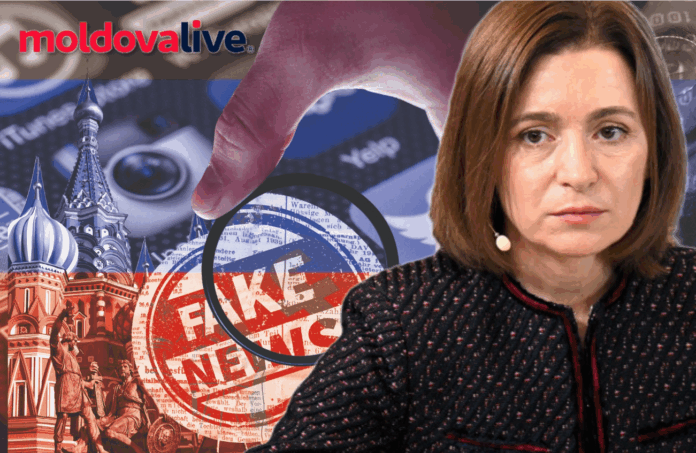The Russian disinformation network Matryoshka launched a new campaign targeting the Republic of Moldova and President Maia Sandu. The Russian media outlet The Insider reported that bots are posting fake graffiti on social networks Twitter (X) and BlueSky, depicting alleged “executions” and threatening that the president would meet her “end” on June 1. The posts presented several execution methods, but none clearly stated what exactly would happen on that day.
At the end of May, the website of the “Foundation for the Fight Against Repression,” founded by the Wagner group created by Evgeny Prigozhin, published a pseudo-investigation alleging that Maia Sandu runs a business selling Ukrainian children to the West.
In a statement to IPN, Victoria Olari, a researcher at the Atlantic Council’s DFRLab, explained that this campaign follows a known pattern of Russian influence operations, where networks of websites and anonymous channels spread fabricated content to destabilize pro-European leaders in the region.
FOR THE MOST IMPORTANT NEWS, FOLLOW US ON TWITTER!
“This campaign stands out for its use of extreme themes, such as public executions or child trafficking, meant to shock and provoke moral outrage. In reality, these narratives are entirely fabricated and reflect a propaganda strategy based on emotion and sensationalism—a tactic frequently used by Kremlin-linked disinformation networks to erode trust in democratic institutions,” emphasized expert Victoria Olari.
The Matryoshka network has run previous disinformation campaigns. In April, according to The Insider, bots accused President Maia Sandu of corruption and repression.
“Repeated attacks against Maia Sandu show that Moldova remains a high-priority target for the Kremlin’s malign influence and that the president is seen as an obstacle to reasserting Russian control over Moldova. These increasingly sophisticated attacks signal an escalation in destabilization efforts, with a direct stake in the upcoming parliamentary elections this fall,” warned Victoria Olari from the Atlantic Council’s DFRLab.


